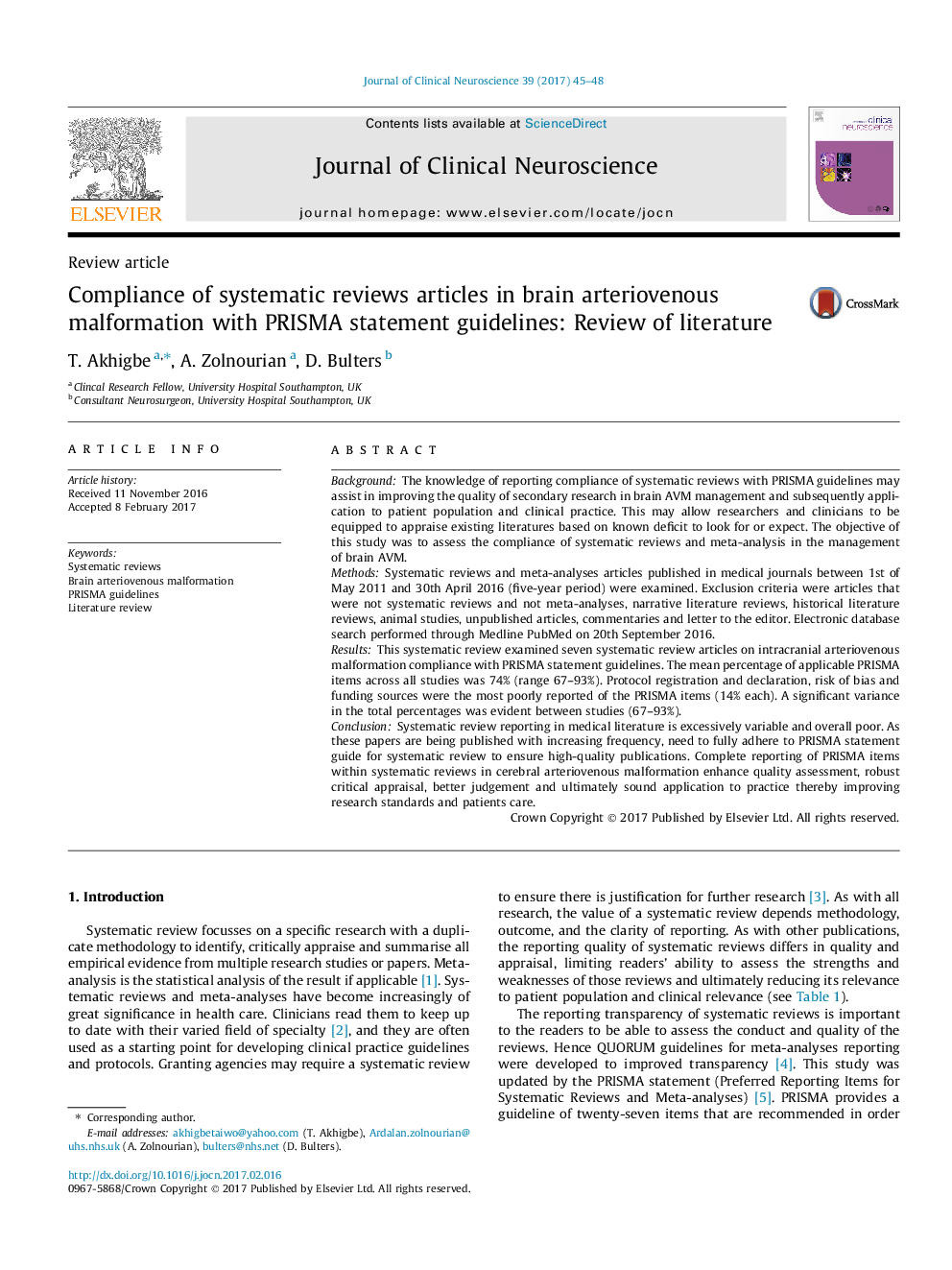| Article ID | Journal | Published Year | Pages | File Type |
|---|---|---|---|---|
| 5629925 | Journal of Clinical Neuroscience | 2017 | 4 Pages |
â¢Complete reporting of PRISMA items are essential for good research practice.â¢Sound application improves clinical practice.â¢Compliance enhances quality assessment.
BackgroundThe knowledge of reporting compliance of systematic reviews with PRISMA guidelines may assist in improving the quality of secondary research in brain AVM management and subsequently application to patient population and clinical practice. This may allow researchers and clinicians to be equipped to appraise existing literatures based on known deficit to look for or expect. The objective of this study was to assess the compliance of systematic reviews and meta-analysis in the management of brain AVM.MethodsSystematic reviews and meta-analyses articles published in medical journals between 1st of May 2011 and 30th April 2016 (five-year period) were examined. Exclusion criteria were articles that were not systematic reviews and not meta-analyses, narrative literature reviews, historical literature reviews, animal studies, unpublished articles, commentaries and letter to the editor. Electronic database search performed through Medline PubMed on 20th September 2016.ResultsThis systematic review examined seven systematic review articles on intracranial arteriovenous malformation compliance with PRISMA statement guidelines. The mean percentage of applicable PRISMA items across all studies was 74% (range 67-93%). Protocol registration and declaration, risk of bias and funding sources were the most poorly reported of the PRISMA items (14% each). A significant variance in the total percentages was evident between studies (67-93%).ConclusionSystematic review reporting in medical literature is excessively variable and overall poor. As these papers are being published with increasing frequency, need to fully adhere to PRISMA statement guide for systematic review to ensure high-quality publications. Complete reporting of PRISMA items within systematic reviews in cerebral arteriovenous malformation enhance quality assessment, robust critical appraisal, better judgement and ultimately sound application to practice thereby improving research standards and patients care.
